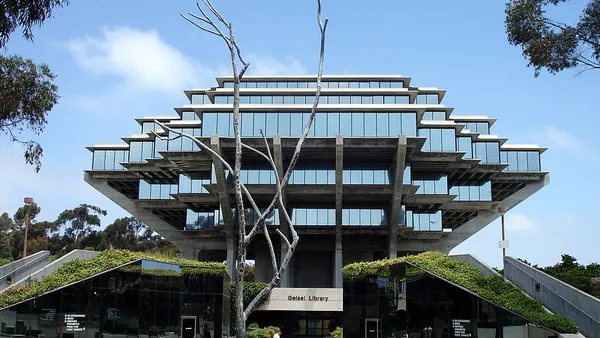Oakland University, in Michigan, reached a tentative five-year contract deal with faculty union bargainers Tuesday, averting a potential strike as the academic year begins.
The contract would increase the pool available for merit raises by 4% for faculty in the first year. The first year would also include one-time lump sum payments of $1,500 for full-time faculty and $500 for special lecturers.
The following four years of the contract would see 3% increases to the merit pool annually, with an additional $500,000 allocated for market adjustments in the second and third years.
The agreement would also bring unspecified increases for promotional raises and funds for faculty travel and research, as well as doubling the retirement stipend for special lecturers.
The deal requires ratification by members of the Oakland University chapter of the American Association of University Professors, which represents faculty at the institution. Both university and union negotiators agreed to recommend that faculty vote in favor of the agreement, according to Oakland. Ratification could come in the next week or two, per a university spokesperson.
The university said Tuesday the agreement “rewards faculty while keeping the university on a fiscally sustainable path."
“Our faculty members’ contributions are critical to our mission and achieving our strategic goals,” Oakland President Ora Hirsch Pescovitz said in a statement. “This generous package demonstrates our commitment to their continued success.”
With the union’s current contract set to expire Tuesday, a potential faculty strike has loomed over the protracted negotiations.
Union officials were prepared to call for a work stoppage if no agreement was reached during Tuesday’s bargaining session. Amy Pollard, executive director of the university’s AAUP chapter, said amid a vote to authorize a strike Tuesday that member sentiment was “overwhelmingly in favor of authorization.”
Instead, the union signaled to members that classes would carry on as scheduled and recommended its members email students to inform them.
Earlier negotiations included a fight over a policy that would have standardized faculty workloads across departments, which the union strongly opposed over concerns about shared governance and which the university eventually backed away from. That left economic matters — i.e., faculty salary and compensation — as the main sticking point.
The deal comes as Western Michigan University, 150 miles away, faces a potential faculty strike amid extended contract negotiations over compensation and healthcare.
A spokesperson for Western Michigan said via a Tuesday email that “the negotiation teams have made meaningful progress,” with tentative deals around healthcare benefits, insurance and most forms of economic compensation — leaving the size of compensation increases for the next two academic years unsettled.
“We look forward to reaching resolution,” the spokesperson said, adding that “at the front of our mind is attracting and retaining the very best faculty while also serving our students' needs.”














